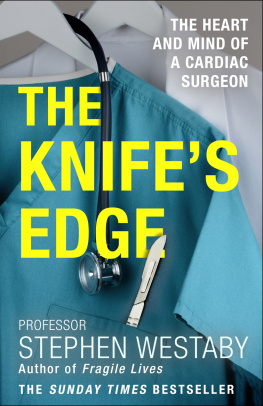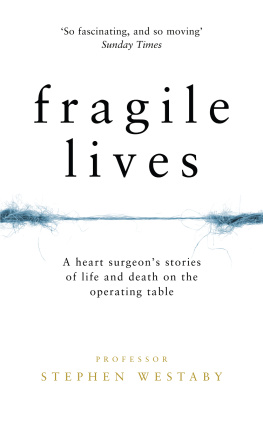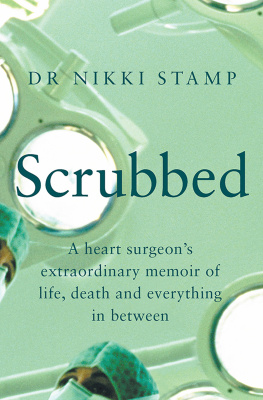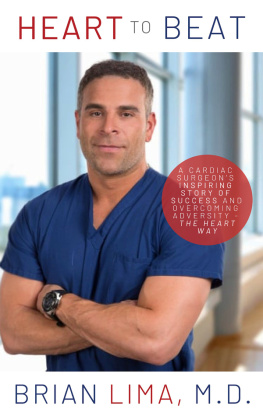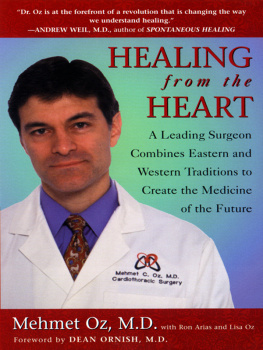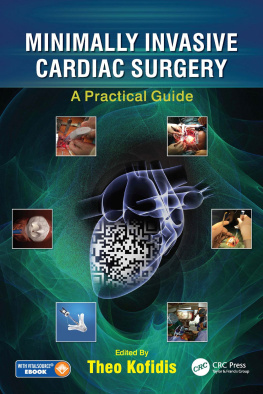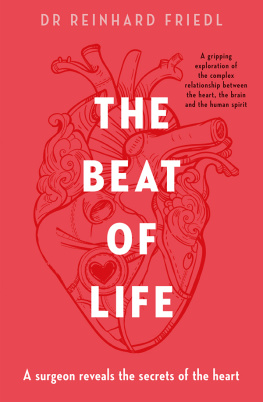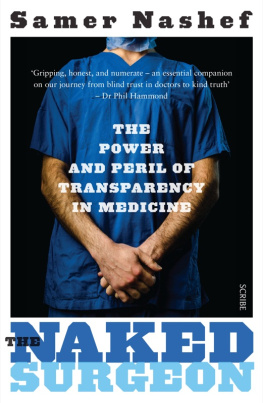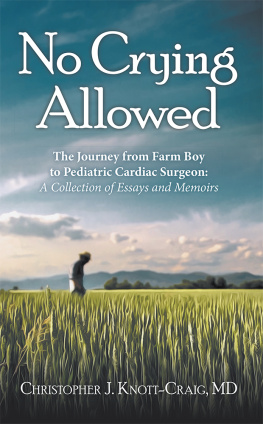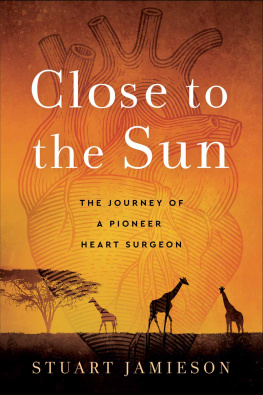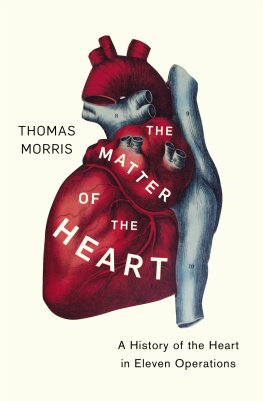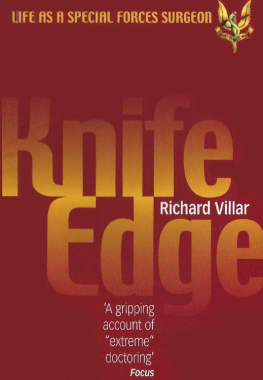Certain details, including names, places and dates, have been changed to protect privacy.
Mudlark
An imprint of HarperCollinsPublishers
1 London Bridge Street
London SE1 9GF
www.harpercollins.co.uk
First published by Mudlark 2019
SECOND EDITION
Stephen Westaby 2019
Cover layout design Rhys Willson HarperCollinsPublishers 2020
Cover photograph Shutterstock.com
Stephen Westaby asserts the moral right to be identified as the author of this work
A catalogue record of this book is available from the British Library
All rights reserved under International and Pan-American Copyright Conventions. By payment of the required fees, you have been granted the nonexclusive, non-transferable right to access and read the text of this e-book on screen. No part of this text may be reproduced, transmitted, downloaded, decompiled, reverse engineered, or stored in or introduced into any information storage retrieval system, in any form or by any means, whether electronic or mechanical, now known or hereinafter invented, without the express written permission of HarperCollins e-books.
Find out about HarperCollins and the environment at
www.harpercollins.co.uk/green
Source ISBN: 9780008285791
Ebook Edition February 2020 ISBN: 9780008285807
Version: 2020-01-21
For Sarah, who saved me from myself, together with Gemma and Mark, then Alice and Chloe, the children and grandchildren who give me so much pleasure.
Every single heart operation risks a life. This tension between kill or cure is unique to my specialty, with no professional equivalent, and few people can live with it on a daily basis. During my formative years, to operate within the heart was seen as the last surgical frontier. Direct vision repair was considered as difficult as landing on the moon or splitting the atom. Then the heartlung machine and the swinging sixties changed everything. Heart transplants and artificial hearts both emerged during my impressionable medical school years. When I embarked on training in the 1970s, heart surgery remained an exclusive and remote club that was exceptionally difficult to join. Yet I was eventually granted the profound privilege of being able to improve thousands of lives.
Each heart is unique in its own way. Although most operations prove straightforward and uneventful, some evolve into an extraordinary battle for survival and a few are quite literally a bloody disaster. As my experience and knowledge increased, I became a last port of call for the cardiologically destitute, a depository for cases that no one else wanted, at home and abroad. Ultimately I lost patients whom I knew could be saved with equipment we were denied in the NHS. The recriminations that accompany death soon followed. An agonising interview with the bereaved, dismal discussions at the Morbidity and Mortality Meeting, then a joyless visit to the coroners court. I was vehemently outspoken about the systems deficiencies, and suffered as a result. The NHS doesnt care for those who do not conform.
In this book I have set out to describe how it felt to be a heart surgeon as the specialty emerged and what it is like in the current hostile environment. I have depicted the physical and the psychological endeavour, the emotional highs and lows, the triumphs and the disappointments, and how being a surgeon affected me and my loved ones. When I was a young man, as we shall see, a peculiar quirk of fate helped me by dispelling my inhibitions and rendering me immune to fear. Its not something I would freely recommend and it was a curious launchpad for a career at the sharp end, one that enabled me to embrace challenges that others would wish to avoid.
For someone who is not a professional writer, it takes an inordinate amount of time and effort to write a book for public consumption. You will undoubtedly conclude that I was more the surgeon than the literary genius, yet to my delight my first book, Fragile Lives, became an award-winning bestseller. As the title suggests, the book largely focused on remarkable cases. The Knifes Edge is darker. It describes my humble beginnings, my struggle to succeed, and my priceless relationships with some of the pioneers and great leaders of the specialty. Because of the huge risks involved and the pile of bodies that ensued, the pioneers all manifested a particular personality type bold, determined, often flamboyant, with resilience and immunity to grief. Sadly, so taxing is the lifestyle that by the end of my career few UK graduates were prepared to make it their calling and career. The end of an era, or the end of the beginning as some would put it.
The whole riveting story of modern heart surgery evolved during my lifetime, and I was proud to be part of it.
Just weeks after my surgical career came to an end I was invited to present the prizes at a local school speech day. The headmistress urged me to treat the teenagers as adults, and suggested that I convey to them what personal qualities I possessed that enabled me to become a cardiac surgeon. By this stage I had a stock response: To study medicine, I said to the assembled schoolchildren, demands an unstinting work ethic and great determination. Then it requires more than a modicum of manual dexterity, together with supreme confidence to train as a surgeon. To aspire to become a heart surgeon and risk a patients life every time you operate is a step beyond. For that you need the courage to fail.
This last phrase wasnt original it was regularly used to describe the heart surgery pioneers in the era when more patients died than survived but the kids didnt know that. I decided to omit the claim that gender, social class, colour and creed played no part, because I really didnt believe it myself. Nor did I regard myself as possessing all the qualities I talked about. I was more of an artist. My fingertips and brain were connected.
After rewarding the school swats, I started nonchalantly answering questions about my achievements in Oxford. With considerable insight, one biology boffin asked how its possible to operate inside an organ that pumps five litres of blood every minute and whether the brain dies if the heart stops. Another wanted to know how to get to the heart when its surrounded by ribs, breast-bone and spine. Then the art teacher asked what causes blue babies, as if someone paints them blue.
Coming to the end of the session, a bespectacled little girl with pigtails raised her hand. Standing up like a poppy in a cornfield, she boomed out, Sir, how many of your patients died?
So loud was her earnest approach that there was no way I could pretend not to hear. One set of parents tried to disappear under the floorboards while the flustered headmistress began explaining that it was time for the honoured guest to now leave. But I couldnt ignore this inquisitive individual in front of her friends. I considered the question for a moment, then had to confess: I really dont know the answer to that. More than most soldiers but fewer than a bomber pilot, I guess. At least fewer than Enola Gay over Hiroshima, I thought to myself cynically.
Quick as a flash, Miss Curiosity probed again. Can you remember them all? Did they make you sad?
Another brief moment of deliberation. Could I admit to a hall full of parents, teachers and schoolchildren that I had no idea exactly how many patients I had dispatched, let alone recall their names. I could only muster one response: Yes, every death upset me. I waited to be struck down with a thunderbolt but mercifully that was the end of our brief dialogue.

